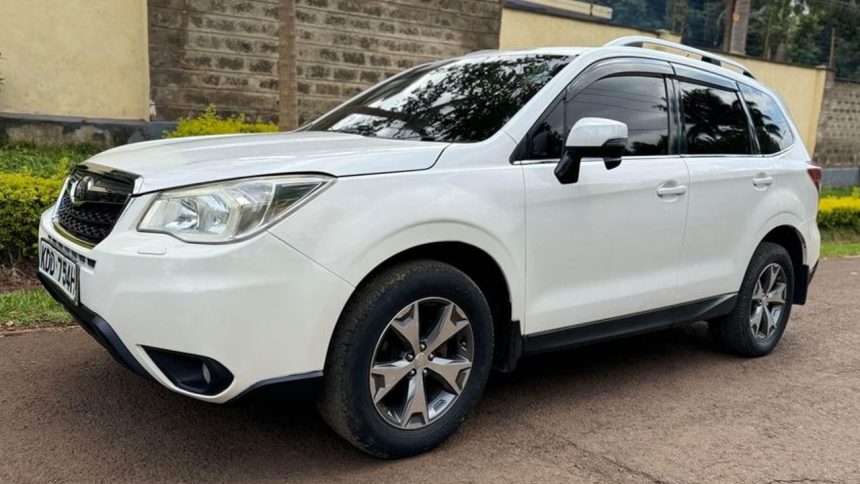It’s a no-brainer that your Subaru Forester needs a steady supply of fuel to run. It’s perhaps the only reason vehicle owners line up at the gas station. Your Subaru Forester fuel pump transports fuel from your gas tank to the engine in constant pressure to ensure that it is operating smoothly.
Depending on your vehicle’s make, model, and year, you might have a mechanical or electric fuel pump.
Therefore, if your vehicle has a bad or failing Subaru Forester fuel pump, it might not be able to perform its typical functions. It is essential to note that the most critical part of diagnosing a vehicle problem is listening to noises and understanding the issue.
Learn what sounds your Car makes, from rattles to the normal RPM range. With this information, you’ll be able to notice when your Subaru Forester isn’t functioning regularly.
Understanding the Subaru Forester Fuel Pump?
Depending on your Car, the fuel pump is either electric or mechanically controlled. It is what distributes fuel from the gas tank to the fuel filter and, finally, the rails.
From this point, the fuel gets to the injectors and is sprayed into each engine cylinder combustion chamber. If you own an older vehicle, your fuel pump sends fuel straight to the carburetor.
There are two types of fuel pumps:
- Electric fuel pump: If you own a modern car, it comes with an electric fuel pump since it requires high pressure.
- Mechanical fuel pump: This type of pump uses positive displacement and a diaphragm or plunger. Using a cyclical action, the mechanical pump draws fuel, traps it, and finally moves it to the carb engine, repeating the cycle.
Symptoms of a Failing Subaru Forester Fuel Pump
When your Car has a bad or failing fuel pump, it will begin to show some symptoms that will help identify the problem. Here are the most common:
- Hard Start
Your Car requires fuel to run. If your fuel pump is faulty, chances are it won’t get fuel to your engine, leading to a hard start situation. It is essential to note that a defective fuel pump will still pump fuel, but your Subaru Forester might fail to start due to decreased or insufficient pressure.
- Whining noises from the fuel tank
The most common problem experienced by vehicle owners when their fuel pumps fail is a loud whining sound.
When the fuel pump is worn out, it usually produces a noticeable howl or loud whine as it runs. In typical operation, the fuel pump needs to have a quiet hum. However, a deafening whine is a symptom that your fuel pump is on its way out.
- Misfire
Another symptom that your Subaru Forester’s fuel pump is failing is a misfiring engine. This will typically happen on the highway when your Car is driving at speeds well over 60km/h.
The misfire occurs because your engine lacks fuel and is dying and starting up again. A drop in fuel pressure usually causes this. In some situations, moisture gets into the fuel tank, creating a similar issue.
- Poor fuel economy
If your car gives you decent fuel economy but suddenly turns into a fuel hog, your fuel pump could be the problem. Subaru Forester fuel pumps usually have a relief valve that will generally allow more fuel than necessary to get into the engine if it fails to open.
- Irregular engine temperature
When your fuel pump is faulty, it sends improper gas to your Subaru Forester’s engine. This action forces the engine to become overstressed, leading to erratic engine temperatures.
- Sputtering
If your car starts to run rough and suddenly dies, the engine might not be getting enough gas, leading to sputtering. This could also lead to inconsistent or unintended acceleration.
The simplest way to check if your fuel pump is faulty is to turn the car on and listen to it. Depending on your vehicle, the fuel pump is located beneath the rear passenger seat. When the Car is on, you’ll be able to hear a quiet hum (healthy fuel pump) or a loud whine (faulty fuel pump) by pressing your ear to the backseat.
The other alternative is opening the gas cap and listening. Please note: Your vehicle’s fuel system is a fire hazard and should only be diagnosed by a professional and qualified mechanic.
Diagnosing your fuel system at home could lead to catastrophic events and even loss of life in case of a fire. Always contact a professional mechanic if you suspect something might be wrong with your car.










